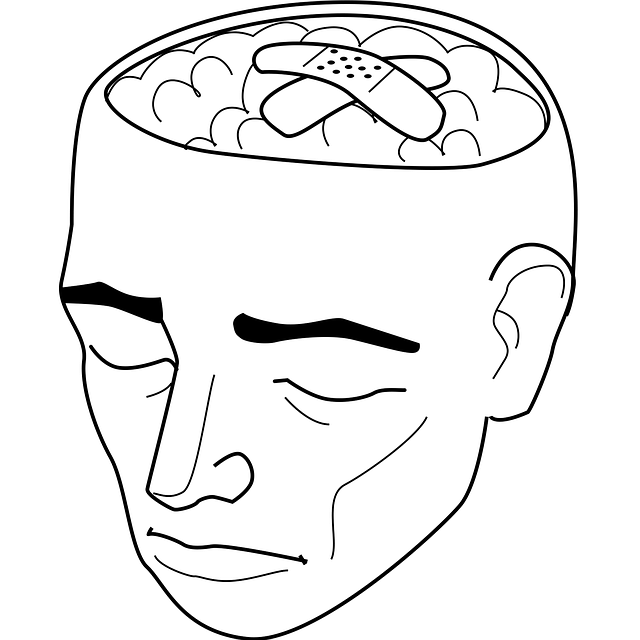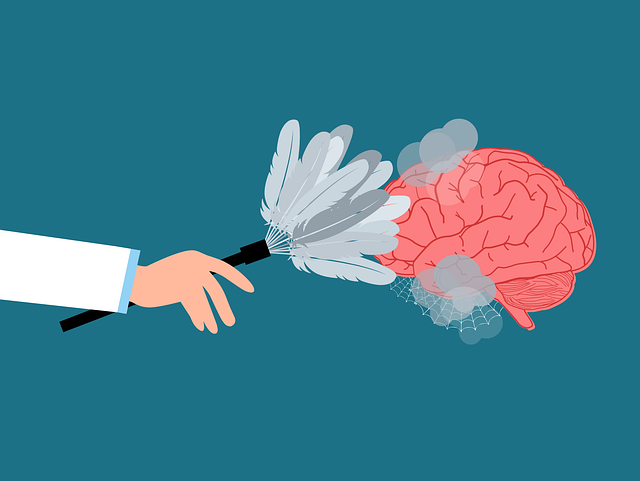Crisis Intervention Teams (CITs) are vital in mental healthcare, especially for high-risk scenarios like those requiring Englewood Mental Health Evaluations and Therapy. Comprising cross-trained professionals from diverse backgrounds, CITs use evidence-based interventions to ensure client and community safety. Through social skills training and stress reduction methods, they de-escalate crises, foster empathy, and tailor solutions. Englewood Mental Health Evaluations are key in training, offering insights into mental health status during critical situations. Integrating these evaluations with Self-Awareness Exercises and Mental Health Policy Analysis allows for personalized interventions and ethical scenario navigation. Effective therapy techniques like CBT and active listening, along with burnout prevention strategies, enhance resilience and prevent professional exhaustion. Holistic CIT training integrates risk management planning, therapy techniques, cultural competency, simulations, role-playing, and group discussions to improve patient outcomes and mental health service quality.
Crisis intervention team (CIT) training programs are essential in equipping professionals to handle mental health crises effectively. This article explores the vital role of CITs, focusing on their impact and the critical components of their training. We delve into key elements such as Englewood Mental Health Evaluations, effective therapy techniques, and best practices for designing comprehensive CIT training programs. By understanding these aspects, we can enhance crisis response and improve outcomes for those in need.
- Understanding Crisis Intervention Teams: Their Role and Impact
- Englewood Mental Health Evaluations: A Key Component of Crisis Training
- Effective Therapy Techniques for Crisis Intervention
- Designing Comprehensive Crisis Intervention Team Training Programs
Understanding Crisis Intervention Teams: Their Role and Impact

Crisis Intervention Teams (CITs) play a vital role in mental healthcare, especially when it comes to high-risk situations and emergency evaluations. These specialized teams are designed to provide immediate support and de-escalation strategies for individuals experiencing severe psychological crises, such as those requiring Englewood Mental Health Evaluations and Therapy. The primary goal is to ensure the safety of both the client and others while offering evidence-based interventions.
CITs typically consist of cross-trained professionals from various disciplines, including mental health specialists, paramedics, police officers, and social workers. Their training equips them with the skills to assess and manage a diverse range of crises, considering cultural sensitivity in mental healthcare practice. By integrating social skills training and stress reduction methods, CIT members can defuse tense situations, offer empathy, and provide tailored interventions. This collaborative approach has been proven to reduce rehospitalization rates and improve long-term outcomes for individuals facing mental health challenges.
Englewood Mental Health Evaluations: A Key Component of Crisis Training

Englewood Mental Health Evaluations play a pivotal role in crisis intervention team training programs. These evaluations are designed to assess an individual’s mental health status during critical situations, providing essential insights for informed decision-making by team members. By integrating Englewood Mental Health Evaluations into their therapy practices, crisis teams gain the capability to deliver targeted interventions tailored to each person’s unique needs.
Incorporating Self-Awareness Exercises alongside these evaluations enhances the overall effectiveness of training. These exercises foster deeper understanding among team members, enabling them to recognize and address their own emotional responses during high-pressure scenarios. Coupled with Mental Health Policy Analysis and Advocacy, crisis teams can navigate complex situations ethically, ensuring that every individual receives appropriate care in alignment with current mental wellness coaching programs development.
Effective Therapy Techniques for Crisis Intervention

Effective therapy techniques are paramount in crisis intervention training programs, as they equip professionals to handle high-pressure situations with empathy and skill. One evidence-based approach is cognitive behavioral therapy (CBT), which aids individuals in identifying and changing negative thought patterns contributing to crises. By integrating CBT methods, crisis intervention teams can help clients develop coping strategies and gain a sense of control during turbulent times.
Englewood Mental Health Evaluations Therapy emphasizes the importance of active listening, validating emotions, and providing structured support. These techniques not only de-escalate intense situations but also foster open communication. Additionally, incorporating burnout prevention strategies for healthcare providers is crucial alongside emotional well-being promotion techniques. Encouraging self-care practices and mental wellness journaling exercises can enhance resilience and prevent professional exhaustion.
Designing Comprehensive Crisis Intervention Team Training Programs

Effective crisis intervention team (CIT) training programs are meticulously designed to equip healthcare professionals with the skills and knowledge needed to handle mental health crises, such as those involving depression or other serious conditions, often requiring urgent assessment and treatment. These programs must encompass a holistic approach, integrating various components like risk management planning for mental health professionals, Englewood Mental Health Evaluations, and Therapy techniques, along with cultural competency training to ensure effective support across diverse communities.
The curriculum should promote interactive learning through realistic simulations, role-playing scenarios, and group discussions, fostering an environment that encourages open dialogue and critical thinking. Additionally, addressing specific challenges within the healthcare system, including navigating complex patient populations and managing high-stress situations, is crucial. By integrating these elements, comprehensive CIT training equips providers with the tools to respond swiftly and compassionately during crises, ultimately enhancing patient outcomes and improving the overall quality of mental health services.
Crisis intervention team training programs, encompassing elements like Englewood Mental Health Evaluations and effective therapy techniques, are vital for fostering communities that can navigate and respond to crises proactively. These comprehensive programs equip teams with the skills to provide immediate support, reduce harm, and promote long-term recovery. By integrating evidence-based practices, organizations can create a more resilient and responsive environment, ultimately enhancing the well-being of individuals facing mental health crises.













